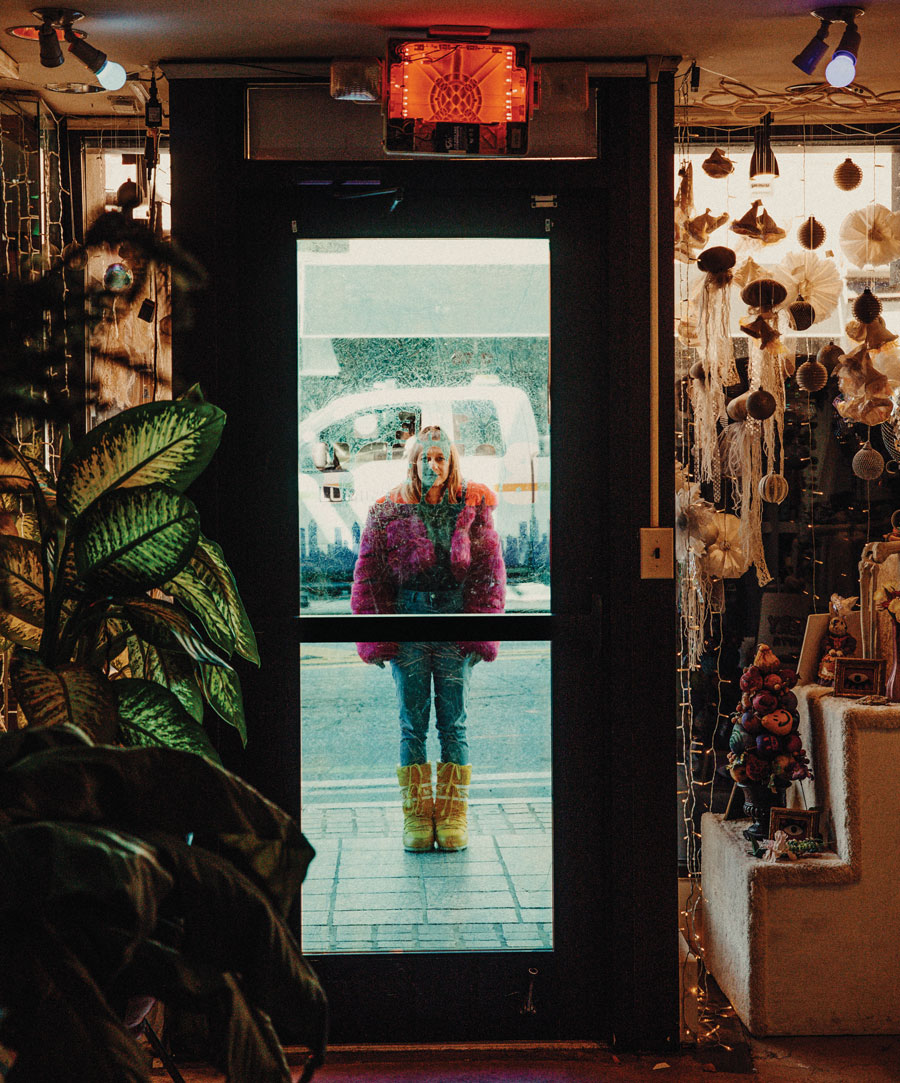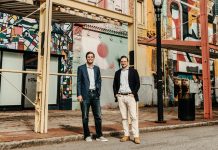
Photograph by Growl
Engagement
Marian Liou
Director of community engagement and the arts at Atlanta Regional Commission (ARC); founder of We Love Buford Highway
“It’s not just the cool mural at the end of the project, but it has to be at the beginning because the creativity that artists bring can allow you to dream bigger from the beginning.”
Liou founded the civic organization We Love Buford Highway after she saw immigrant communities being left out of revitalization plans for the Buford Highway corridor. By building relationships between city planners and small business owners, We Love Buford Highway helped solidify the area’s reputation as an international dining destination. More importantly, she worked to involve immigrant business owners in the future of the corridor not for tourism and economic development but to build a stronger community. Now, at ARC, she’s working to incorporate artists and creative entrepreneurs into development and city planning, to do the same for the Atlanta region: “I don’t think it’s possible to think about the future [of downtown] without the connection of storytelling, cultural expression, and sense of place,” Liou says.
Community
Xavier Moreno
Cofounder of WERC Crew; DJ
“There’s always been a fight for visibility for the creative community here. A lot of the artists feel like underground legends, even if they are known worldwide.”
Ten years ago, as Edgewood was becoming a hot spot for music and nightlife, Moreno was in the clubs, spinning the latest Afro-Caribbean and hip-hop beats. He found a community of dancers and DJs, and they started throwing parties around downtown and Old Fourth Ward as the WERC Crew, featuring live music from artists such as Yung Baby Tate, India Shawn, and Bosco. Today, they’re known for their sweat-your-hair-out dance parties, like their monthly R&B event, the Groove. Moreno says artists here struggle for local and national coverage, but sometimes, that makes the community more authentic: “When you see art on a canvas or on a stage, you feel like you’re seeing a raw, stripped-down, genuine version of the art they’re giving forth.”

Photograph by Addae Moon
Inclusion
Addae Moon
Associate artistic director of Theatrical Outfit; cofounder of Hush Harbor Lab; dramaturge and playwright
“There are so many different Atlantas, and you rarely get to see them represented onstage.”
When Moon moved here to attend Clark Atlanta University in 1989, he says the theater scene was booming. His artistic foundation was formed by a plethora of small Black theater companies in town. But as real estate became more expensive, he watched many of those arts organizations shutter due to inequitable funding. Today, he’s working to correct that: Moon is involved with Theatrical Outfit’s Made in Atlanta series—a work development program for artists telling stories about Atlanta—and his organization Hush Harbor Lab focuses on stories from the African diaspora. “Theaters need to make space for the development of a new Southern dramatic canon. We have moved beyond Tennessee Williams and William Faulkner,” Moon says. “We have the talent to make the theater coming out of this city as rich as the music.”
Space
Willow H. Goldstein
Founder of the Bakery
“These big entities need to open up. It won’t hurt your bottom line to give someone 1,000 square feet of space.”
As a facilitator and curator of people, ideas, and spaces, Goldstein wanted to open a building with gallery space, studios, and room for performing arts and collaboration. Space is a pain point for artists in Atlanta: Rising rents make it difficult for emerging artists to find places to experiment. That’s what the Bakery South Downtown is. “The inability for most people, especially artists, to access government resources and buildings needs to be upgraded,” Goldstein says.
Patronage
T. Lang
Associate professor of dance at Spelman College and inaugural chair of the dance performance and choreography department; founder of T. Lang Dance and Movement Lab
“Looking at when Alvin Ailey American Dance Theater comes to town, I want us to have that same energy when Ballethnic, T. Lang, or Full Radius are performing.”
Lang worked in New York City as a choreographer and dancer before moving to Atlanta in 2008. She said she knew the city’s rich civil rights history would give greater impact to the work she was doing. In 2012, she premiered her company, T. Lang Dance, which has performed at venues all over downtown, including at Woodruff Park and in MARTA stations. “The spirit of dance in Atlanta definitely needs nourishment and that nourishment is in space and funding, so we can teach audiences the relevance, importance, and magic of dance just like the other arts,” Lang says.
Back to “Who is Downtown Atlanta For?”
This article appears in our January 2023 issue.














